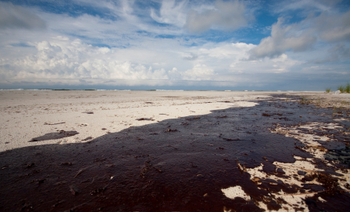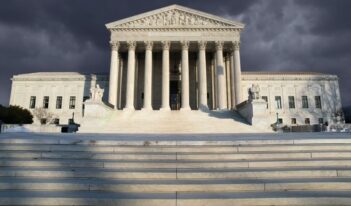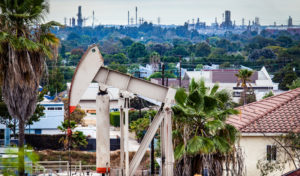
Three years after largest U.S. oil spill, Gulf Coast restoration continues
A coalition of federal agencies and five states intends to deploy nearly $600 million, drawn from a $1 billion fund financed by BP, to pay for twenty-eight new early restoration projects across the Gulf Coast. The proposal would come over three years after that area faced extensive on- and offshore environmental damage from the largest oil spill in U.S. history.
The expected costs of the projects vary in size from $210,000 for a discrete project in Jefferson County, Texas, to tens of millions of dollars for more complex projects in Alabama, Florida, Louisiana, and Mississippi
Louisiana Governor Bobby Jindal previously announced $340 million in funding in his state, with the overwhelming majority going to restore several barrier islands along the state’s coastline. The money would create beaches, dunes, and back-barrier marsh areas, as well as repopulate native species, around these areas that the National Oceanic and Atmospheric Administration (NOAA) described as “among the first terrestrial habitats to be oiled during the Spill.”
Just as not all states were equally affected by the Deepwater Horizon oil spill, so too would not all states receive the same level of funding under this proposal. Alabama would receive $93.7 million, Florida would receive $73.9 million, and Mississippi would receive $68.9 million, while Texas would receive only $18.2 million.
The stated needs for the intended restoration projects do not all seem to have resulted from the oil spill. Most of the funding would help restore wildlife habitats, shorelines, and coastal reefs, but some of the other projects—frequently justified with a broad purpose to restore or improve public “recreational opportunities”—would be state park improvements that appear unrelated to the spill cleanup or recovery.
For instance, approximately $1.5 million would pay for an additional boat ramp lane, more parking, and a new restroom at Big Lagoon State Park in Florida, and around $10.7 million would pay for the construction of campsites, an equestrian trailhead, and a boardwalk over dunes at Sea Rim State Park in Texas. While the direct connection to the Gulf spill may be tenuous, all the projects appear to be in the public interest.
Under federal regulations, the government coalition expects to give the public opportunity to comment on these twenty-eight projects. The group further intends to identify more early restoration projects in states along the Gulf Coast.
BP’s possible liability for the 2010 Deepwater Horizon oil spill will be decided by a federal judge in a lawsuit by the Department of Justice for alleged violations of the Clean Water Act. In April 2011, a year after the spill, BP agreed to place $1 billion into a fund to finance projects that would restore affected natural resources and public services. BP and the government coalition previously identified ten projects and committed $71 million in funding for these early restoration opportunities.



